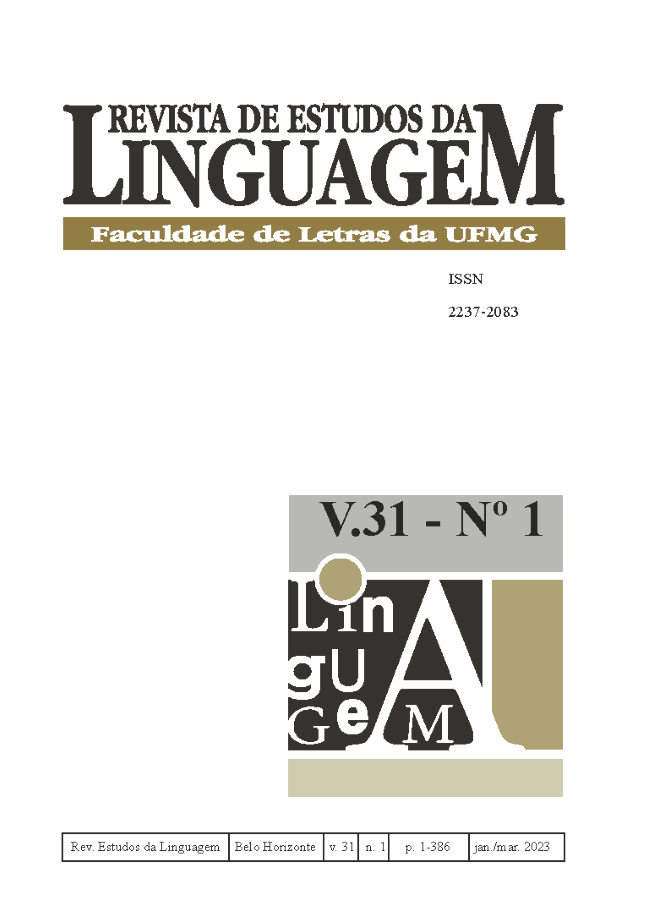Imobilidade do acento em não verbos em português
uma abordagem diacrônica baseada no uso
DOI:
https://doi.org/10.17851/2237-2083.31.1.103-145Palavras-chave:
acento, português, diacroniaResumo
À semelhança do que fez Cantoni (2013) para o sistema de acento do português como um todo, proponho neste trabalho uma explicação diacrônica para o fato de os verbos terem acento móvel e os não verbos terem acento fixo em português. Adoto uma perspectiva diacrônica, considerando, como proposto nas abordagens de sistemas dinâmicos, que o conhecimento do estado inicial de um sistema nos ajuda a entender seu estado atual. Nesse sentido, examino os paradigmas flexionais de substantivos latinos e as mudanças que ocorreram desde o latim até o português com o intuito de verificar em que medida essas mudanças morfológicas acabaram determinando características do sistema acentual do português. Em sua grande maioria, os substantivos apresentavam deslocamento do acento em seu paradigma em latim. Como é demonstrado neste trabalho, no entanto, o acusativo era o único caso em que praticamente não havia deslocamento de acento em latim do singular para o plural. O fato de o acusativo ter sido o caso lexicogênico do português, isto é, o caso cujas formas deram origem aos substantivos e adjetivos correspondentes do português, acabou tendo como resultado a imobilidade do acento nos não verbos. Ele era o caso de realização mais frequente e, como seria de se esperar numa perspectiva baseada no uso, foi o único caso que sobreviveu. A seção final do texto discute ainda o fato de que as mesmas mudanças diacrônicas fizeram com que as vogais temáticas nominais e adjetivais nunca sejam acentuadas em português.





